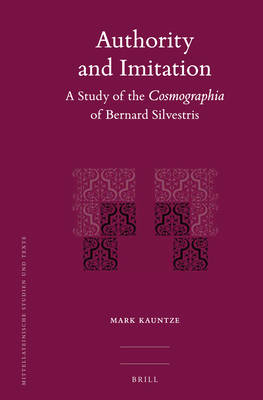
- Afhalen na 1 uur in een winkel met voorraad
- Gratis thuislevering in België vanaf € 30
- Ruim aanbod met 7 miljoen producten
- Afhalen na 1 uur in een winkel met voorraad
- Gratis thuislevering in België vanaf € 30
- Ruim aanbod met 7 miljoen producten
Zoeken
€ 221,45
+ 442 punten
Omschrijving
The Cosmographia is one of the most inventive and enigmatic works of medieval literature. Mark Kauntze argues that this allegory of creation is best understood as a product of the vibrant intellectual culture of twelfth-century France. Bernard Silvestris established the authority of his treatise by imitating those ancient philosophers and poets who were assiduously studied in the contemporary schools. But he also revised and updated them, to develop a compelling intervention into twelfth-century debates about man's place in nature and the relationship between theology and natural science. Using a wealth of manuscript evidence, Kauntze reconstructs the school context in which Bernard worked, and shows how the Cosmographia itself became an object of scholarly annotation and imitation in the later Middle Ages.
Specificaties
Betrokkenen
- Auteur(s):
- Uitgeverij:
Inhoud
- Aantal bladzijden:
- 234
- Taal:
- Engels
- Reeks:
- Reeksnummer:
- nr. 47
Eigenschappen
- Productcode (EAN):
- 9789004256910
- Verschijningsdatum:
- 8/05/2014
- Uitvoering:
- Hardcover
- Formaat:
- Genaaid
- Afmetingen:
- 160 mm x 239 mm
- Gewicht:
- 498 g

Alleen bij Standaard Boekhandel
+ 442 punten op je klantenkaart van Standaard Boekhandel
Beoordelingen
We publiceren alleen reviews die voldoen aan de voorwaarden voor reviews. Bekijk onze voorwaarden voor reviews.








